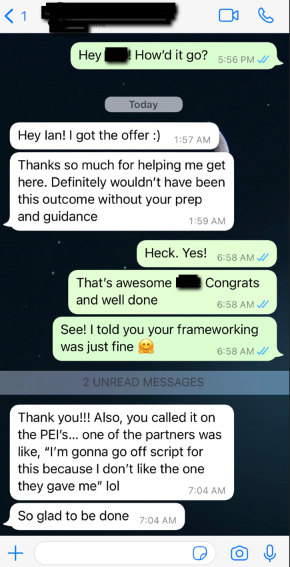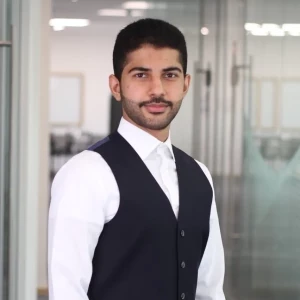Partners sometimes change things up and don’t follow a usual case format. Can you give some examples of this and how to prepare?
One example I can think of is giving a one-sentence broas prompt and going from there. Or not letting you formulate you recommendation on paper before giving it.




















